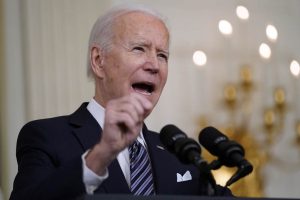Long Island hospital employees are more likely than health care workers nationwide to get vaccinated against COVID-19, according to state data and a poll released Friday.
Eighty percent of Long Island hospital employees have received at least one vaccine dose, state health department data shows. That compares with 66% of frontline hospital employees nationwide who have gotten at least one dose, and 52% of health care workers overall, according to a Washington Post/Kaiser Family Foundation poll.
Health care workers were the first in New York and other states to be eligible for vaccines.
At Mount Sinai South Nassau hospital in Oceanside, 80% of employees and doctors with privileges there have been vaccinated, said Dr. Adhi Sharma, the hospital’s chief medical officer.
Almost all doctors have been vaccinated, with vaccine hesitancy more common among employees with less medical education, he said.
That mirrored what the national poll found: Resistance to getting a vaccine was higher for health care workers with less education and those with lower-paying jobs, such as home health aides.
Many health care workers with less education are influenced by the same misinformation about vaccines on social media and elsewhere as the general public, Sharma said.
Vaccination levels nationwide were lowest — 26% — among frontline health care employees working in people’s homes and highest, at 66%, for hospital employees. Roughly half of those working in doctors’ offices and in nursing homes and other assisted-living facilities received vaccines.
Statewide, 78% of hospital workers have received at least one dose, and 73% are fully vaccinated, according to state health department data. On Long Island, 74% of hospital employees are fully vaccinated.
At Stony Brook University Hospital, 82% of frontline employees have been at least partially vaccinated. At Northwell Health hospitals and at NYU Langone Hospital—Long Island in Mineola, 70% have, officials at the hospitals said.
“We think that’s pretty good, although we’d like to get that even higher,” said Northwell CEO Michael J. Dowling. “You have to remember that even with the flu shot, about 85% of people take it.”
At NYU Langone—Long Island, among those who haven’t been vaccinated could be employees who work off-site, some who may have had COVID-19 or received antibody treatments recently, and people who may have medical contraindications, said NYU Langone spokeswoman Lisa Greiner.
At Mount Sinai South Nassau, about 30 employees had initially declined to get vaccinated. But they recently changed course, because they preferred the Johnson & Johnson vaccine, which the federal government did not authorize until Feb. 27, Sharma said.
The employees preferred the Johnson & Johnson vaccine in part because it’s a more traditional type of vaccine than the ones manufactured by Pfizer-BioNTech and Moderna, and because it is one shot instead of two, he said.
Sharma said that, with the vaccines’ safety demonstrated by the more than 100 million doses successfully administered in the United States, some people may become more comfortable getting inoculated.
Side effects a concern
Overall, 30% of health care workers surveyed nationally either don’t plan on getting vaccinated or are undecided. The Washington Post/Kaiser Family Foundation poll found that about 80% of those workers were worried about side effects and wanted to wait longer to see how the vaccines affect others.
In addition to the 52% of health care workers nationwide who have received at least one dose of a vaccine, 19% are either scheduled to get vaccinated or plan to do so, according to the poll.
The survey of 1,327 health care workers nationwide, described as the most comprehensive of its kind, included those working in hospitals, assisted-living facilities and people’s homes. It was taken from Feb. 11 to March 7 and has a margin of error of plus or minus 3%.
Hesitancy to receive a vaccine was higher among Republican and Black health care workers. Polls of the general public also have found that Republicans and Black Americans are less likely to plan to get vaccinated, with the resistance among some Black people attributed in part to current and past bias and abuse in the health care system.
A national Kaiser survey last month of the general public that had questions that were worded differently found that 15% of Americans would not get vaccinated, 7% would do so only if required for work, school or other activities, and 22% wanted to “wait and see” how the vaccine worked in others.
With David Reich-Hale
Check back for updates on this developing story. Sign up for COVID-19 text alerts at newsday.com/text.



















